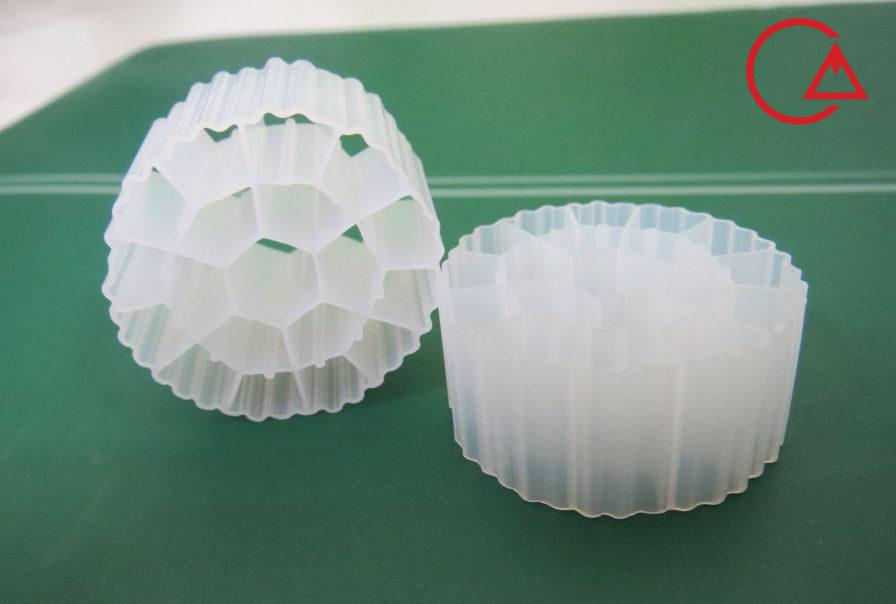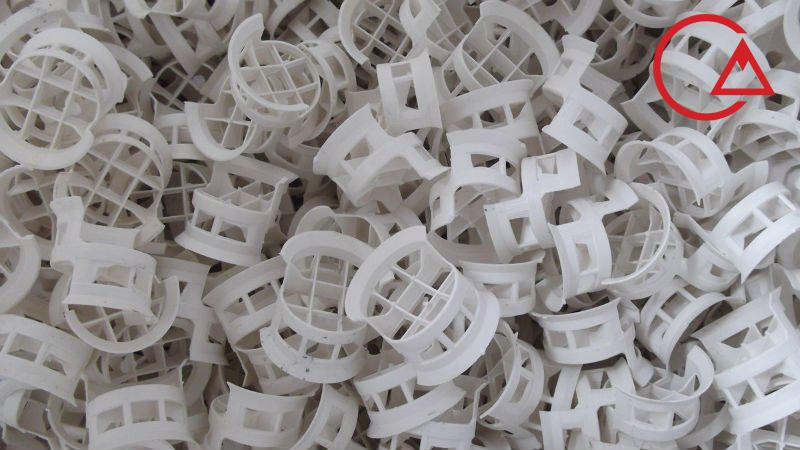Introduction of wastewater treatment by MBBR method
- Moving Bed Biofilm Reactor
- Adherent growth with mobile media
- Small plastic parts cause the growth of attached bacteria.
Steps of wastewater treatment package by MBBR method
- Garbage to preserve MBBR media
- Balancing tank
- MBBR tank
- Sedimentation tank
- Chlorination tank
- Sludge digestion tank

Components of growth unit attached with MBBR mobile media
- CS structure with epoxy coating
- Small size garbage collector at the entrance
- Sludge pump
- Blower roots or side channel according to the size
- Fine Bubble Diffuser
- Chlorination package
- Media packing
- Automatic switchboard with emergency switch
Where is attached growth with moving media used?
- Wastewater treatment of hotels, restaurants and towns
- Wastewater of entertainment and sports centers
- Industrial wastewater treatment

Advantages of MBBR method in sanitary wastewater treatment
- Better removal of cyanide, formaldehyde and phenol
- High dilution ability and reduction of sedimentation pond load
- Increasing the settling power of the resulting materials
- Increasing the speed of the aeration process and, as a result, lower energy costs
- No need to return the activated sludge from the secondary clarifier to the aeration pond and the sufficiency of the stuck sludge
- Optimal use of small space
- Nitrification power
- No need for repairs and overhaul
The disadvantages of this process include the following:
- The need for more aeration and therefore a stronger blower
- Higher energy consumption than other methods

MBBR process design parameters to remove BOD and nutrients
| parameter | the unit | Range of values |
| Anoxic time | h | 1-1/2 |
| Aerobic dwell time | h | 3/5-4/5 |
| biofilm surface | m²/m³ | 200-250 |
| BOD loading | Kg BOD/m³.d | 1-1/4 |
| Amount of hydraulic load of the secondary clarifier | m/h | 0/5-0/8 |
MBBR/SC process design parameters
| parameter | the unit | Range of values |
| MBBR | ||
| Biofilm surface area | m²/m³ | 300-350 |
| organic loading rate | kg BOD/m³.d | 4-7 |
| MLSS concentration | mg/l | 2500-4500 |
| SC | ||
| SRT | d | 302 |
| MLSS concentration | mg/l | 1500-2500 |
| SVI | ml/g | 90-120 |
| Hydraulic dwell time | h | 0/6-0/8 |
| Re-aeration tank | h | 0/6-0/8 |
| MLSS | mg/l | 600-8500 |